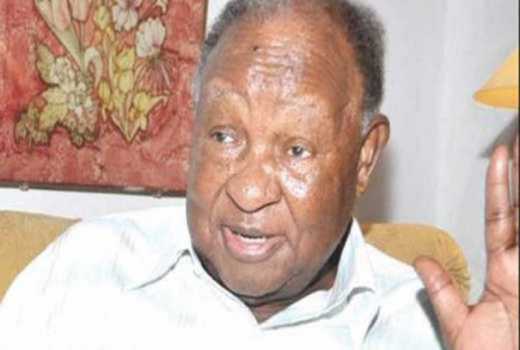×
The Standard e-Paper
Fearless, Trusted News

While he lived, Kenneth Stanley Njindo Matiba was a veritable giant, a colossus in whatever he touched, even after he was badly staggered by a devastating detention spell for daring to stand in the way of runaway Kanu dictatorship.
He, like his coevals Martin Shikuku and Charles Rubia, walked from prison straight to hospital with inflicted mental and physical injuries, only to return more energised to consummate their struggle, which for Matiba was to navigate change from the pinnacle of power, the presidency.